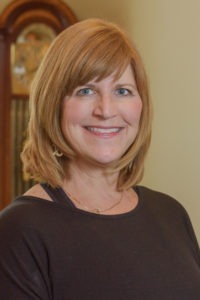Projects for frail elderly receive federal funding
Improving care for frail, elderly patients or providing support for aging services in the community will be the focus of several of the 39 projects earmarked for up to $360 million in funding through the U.S. Department of Health and Human Services' (HHS') Health Care Innovation Awards program, designed to accelerate the development of new payment and service delivery models. New funding recipients were announced yesterday, joining others announced in May. Together, the projects span 27 states and the District of Columbia.
“The Health Care Innovation Awards support our ongoing work to drive down healthcare costs while providing high-quality care to [Centers for Medicare & Medicaid Services] beneficiaries,” said HHS Secretary Sylvia Mathews Burwell. “These awards advance innovative solutions in delivering and improving care from all across our nation.”
Efforts to promote the prevention and management of cardiovascular disorders, reduce unnecessary use of emergency departments, improve care coordination in rural areas of the country, promote better care for those living with HIV/AIDS and improve pediatric dental care also among those who will receive funding. Each project is expected to receive $2 million to $23.8 million in funding over three years. Exact funding amounts are expected to be finalized later this summer.
The 39 projects announced yesterday and in May represent the second round of funding from the Health Care Innovation Awards program. The first round was in 2012, when 107 organizations received funding. This time around, CMS specifically sought innovations to rapidly reduce costs for patients in outpatient hospital and post-acute settings, improve care for those with specialized needs, test improved financial and clinical models for specific types of providers, and link clinical care delivery to preventive and population health.
Among programs receiving funding in the second round:
- Avera Health's Virtual Care Center: Improving Care and Reducing Costs for the Vulnerable Elderly Population project, in South Dakota, Minnesota, Iowa and Nebraska, will test a set of comprehensive, resident-centered, geriatric care services designed to identify urgent issues earlier and address a geriatric care access gap. Thirty long-term care centers will be linked via a centrally staffed telemedicine hub. The project is expected to receive $8.8 million in funding.
- CareChoice Cooperative's Person-Centered Care Connections, in Minnesota, will build on another CareChoice project, Resident-Centered Care Connections, to address problems and gaps in nursing home post-acute and long-term care. An enhanced discharge planning process will aim to improve transitions from care settings to homes, reduce hospital readmissions and improve palliative care through patient, resident and family education. It is expected to receive $3.4 million.
- City of Mesa Fire and Medical Department's Community Care Response Initiative, in Arizona, will test a model that offers new comprehensive delivery systems and addresses the impact of chronic diseases, falls management, self-management skills and medication adherence in an effort to reduce post-discharge returns and inappropriate use of 911. It is expected to receive $12.5 million.
- Four Seasons Compassion for Life's project, Increasing Patient and System Value With Community-Based Palliative Care, in North Carolina and in conjunction with Duke University, will test a model that aims to reduce hospital readmissions through the use of interdisciplinary collaboration and the integration of palliative care into the healthcare system, continuity of care across transitions and longitudinal, individualized support for patients and families. It is expected to receive $9.6 million.
- The Icahn School of Medicine at Mount Sinai's Bundled Payments for Mobile Acute Care Team Services project, in New York, will test a model to address acute care needs in an outpatient setting. The project will involve physicians, nurse practitioners, registered nurses, social workers, community paramedics, care coaches, physical therapists, occupational therapists, speech therapists and home health aides in providing ancillary services such as community-based radiology and lab services, nursing services, durable medical equipment, pharmacy and infusion services, telemedicine, and interdisciplinary post-acute care services for 30 days after admission. After 30 days, the team will work to transition patients back to community providers and provide referrals for services. The project is expected to receive $9.6 million.
- Johns Hopkins University's Comprehensive Home-Based Dementia Care Coordination for Medicare-Medicaid Dual Eligibles in Maryland project will test a model whereby an interdisciplinary team performs in-home Alzheimer's disease-related needs assessments and then develops individualized care plans and implements strategies for care, on-going monitoring, assessment and planning for emergent needs. The project is expected to receive $6.4 million.
- National Health Care for the Homeless Council's Medical Respite Care for People Experiencing Homelessness project, in Minnesota, Oregon, Connecticut, Washington and Arizona, will test a model providing acute and post-acute medical care after hospital discharge in an effort to improve health, reduce readmissions and reduce costs. It is expected to receive $2.7 million.
- Regents of the University of California, San Diego's A Health Attack and Stroke-Free Zone project will test a program aiming to increase stroke awareness and treatment adherence among high-risk people, promote evidence-based stroke and heart attack prevention practices among physicians, use technology related to these efforts and implement intervention for the treatment of cardiovascular risk factors among 4,000 people. It is expected to receive $5.8 million.
- Regents of the University of California, San Francisco's Dementia Care Ecosystem: Using Innovative Technologies to Personalize and Deliver Coordinated Dementia Care project, in California and Nebraska in conjunction with the University of Nebraska Medical Center, will test a model designed to improve satisfaction with care, prevent emergency-related healthcare costs and keep patients in their homes longer through the use of technology (web portals for communication between patients, family members and caregivers) and a care team navigator with 24/7 availability. It is expected to receive $10 million.
- University of Kansas Hospital Authority's Rural Clinically Integrated Network to Improve Heart Health and Stroke Survival for Rural Kansas project will form a collaborative governance structure through which providers can define and refine the entire care continuum for area residents through telehealth, health information exchange, "big data" analysis and population health management. It is expected to receive $12.5 million.
- Yale University's Paramedic Referrals for Increased Independence and Decreased Disability in the Elderly, or PRIDE, project, in Connecticut, will test a model designed to improve care coordination and health outcomes for those with impaired mobility who contact 911 for falls or lift assists but choose to remain at home. It is expected to receive $7.2 million.
For more information about these and other projects, click here (PDF).
I Advance Senior Care is the industry-leading source for practical, in-depth, business-building, and resident care information for owners, executives, administrators, and directors of nursing at assisted living communities, skilled nursing facilities, post-acute facilities, and continuing care retirement communities. The I Advance Senior Care editorial team and industry experts provide market analysis, strategic direction, policy commentary, clinical best-practices, business management, and technology breakthroughs.
I Advance Senior Care is part of the Institute for the Advancement of Senior Care and published by Plain-English Health Care.
Related Articles
Topics: Articles , Medicare/Medicaid











